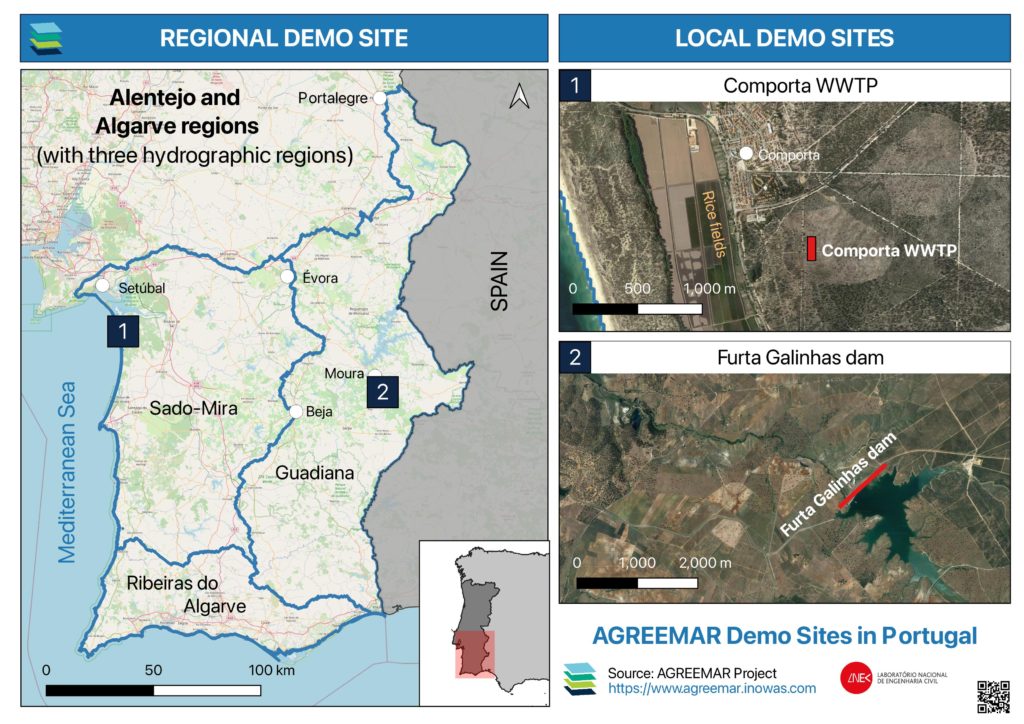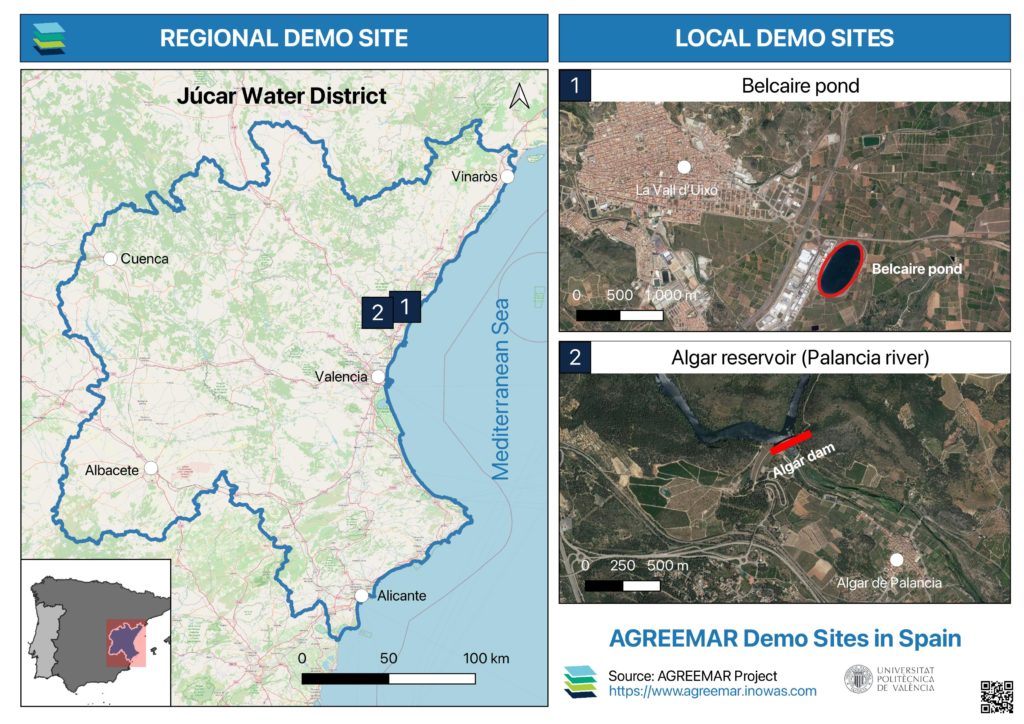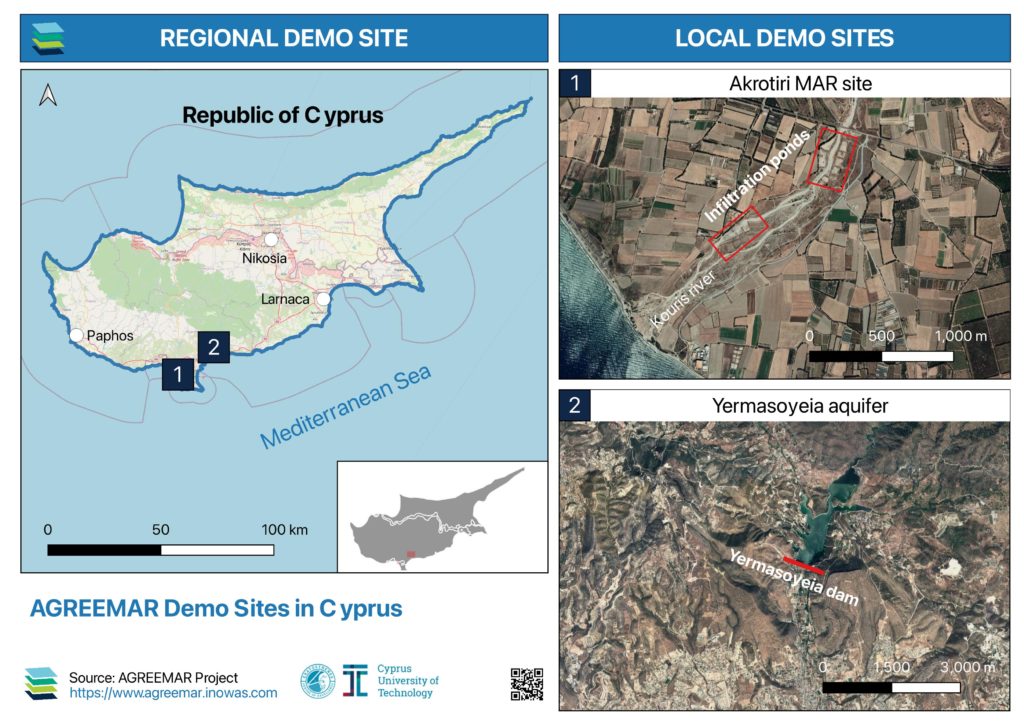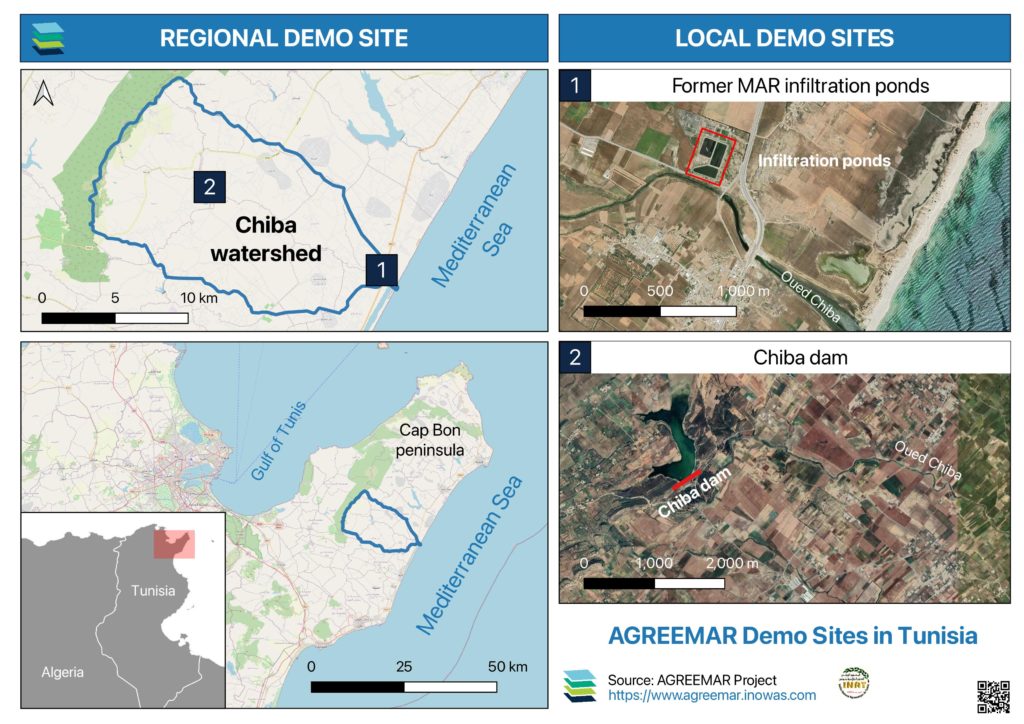The selected demo sites will validate the proposed methodology and enable its integration into a larger context at the level of the entire Mediterranean basin. In the long term, a boost in MAR implementation will contribute to protect and improve the services dependent on aquifers, by maintaining or increasing the volume of water that can be extracted for different uses, positive associated impact on other services and support to aquatic ecosystems.
PORTUGAL

SPAIN

CYPRUS

TUNISIA

